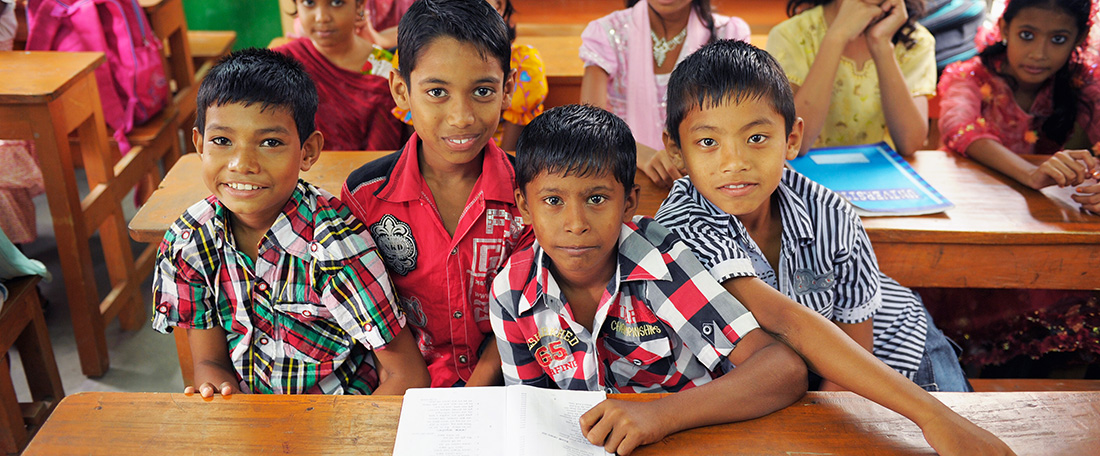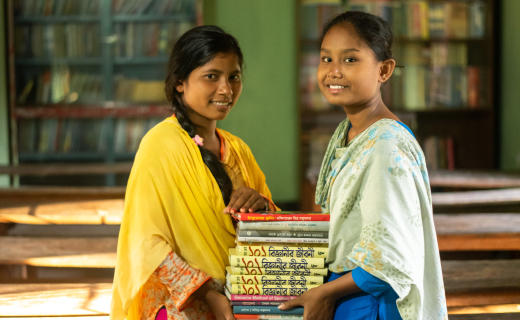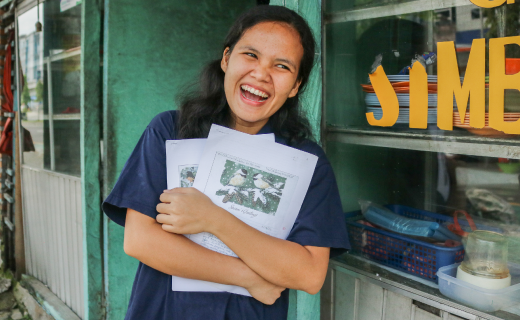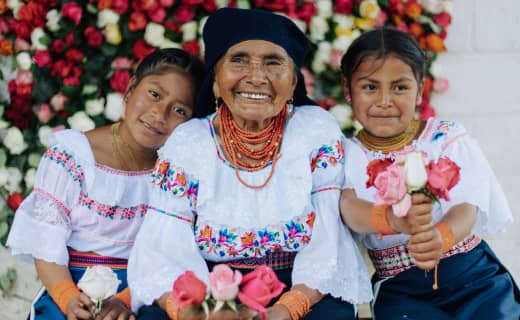Bangladesh
Capital City: Dhaka
Population: 168 million
Life expectancy: male 69.02 years, female 72.94 years
Population with improved drinking water: urban 86.5%, rural 87%
Infant mortality rate: 44.09/1,000
Under 5 mortality rate: 41/1,000
Adult literacy rate: male 64.6%, female 58.5%
Religion: Muslim 89.1%, Hindu 10%, other 0.9% (includes Buddhist, Christian (2013 est.)
Percentage living on less than $1.90 a day: 43.65 percent
A little bit of history
Bangladesh is the most densely populated country on earth with more than 168 million people living in an area roughly the size of England and Wales. For much of the 18th and 19th centuries, Bangladesh was under the rule of the British East India Company as part of the Indian subcontinent. In 1947 when the British left the region, they separated the subcontinent along sectarian lines. What became known as ‘partition’, was far from peaceful with as many as 500,000 estimated to have lost their lives in the violence and rioting. The Muslim regions became known as West and East Pakistan with the Hindu region becoming modern day India. In 1971, East Pakistan was renamed Bangladesh and became a country in its own right.
How Bangladesh makes a living
As the most densely populated country on earth, Bangladesh is battling to support its population. The fact that about a third of this poverty-stricken country floods each year during the monsoon season, makes economic development an ongoing struggle.
Bangladesh’s clothing industry is estimated to be worth about $18 billion and forms the backbone of the country’s industrial sector, accounting for more than 80% of total exports. However, almost half of Bangladeshis are employed in the agricultural sector with rice as the single-most-important product. With the help of the international community, Bangladesh has made great progress in food security since independence, and the economy has grown at an average of about 6 percent over the last two decades.
Challenges faced by children
There are more than 60 million children in Bangladesh - that’s nearly as many as the entire population of the United Kingdom. Although Bangladesh has a stable and growing economy, half of these children continue to live below the international poverty line. Child protection remains a challenge in Bangladesh as it has one of the lowest rates of birth registration in the world. Without formal registration, it’s a real challenge for authorities to protect children from trafficking, child labour and child marriage. Bangladesh has one of the highest rates of child-marriage in the world with 66 percent of women married before their 18th birthday.
Compassion in Bangladesh
Compassion began working in Bangladesh through our local development partner in 2003. More than 38,400 children are registered in 169 child development centres throughout the country.
What sponsored children learn in Bangladesh
Sponsored children in Bangladesh attend their Compassion projects before school and occasionally on Saturdays. During a typical project day, sponsored children will cover topics such as ...
- 8.00am – 10.30am Songs, games and introductory time.
- 10.30am Break time. Children can play in a safe environment and develop friendships.
- 11.00am Social lessons. From conflict resolution to developing healthy self-esteem, children who often come from challenging home environments are taught social and personal skills.
- 12.00pm Lunch and social time. Because one of the biggest challenges facing children in Bangladesh is a lack of food, each child receives a meal five days a week. The meals generally consist of rice and lentils along with either vegetables, fish, eggs, chicken or potatoes.
- 13.00pm Health lessons. Children are taught practical health and hygiene tips.
- 14.00pm Letter writing and career planning. Older children work with project staff to identify their strengths and interests, setting realistic goals for their future.
Additional activities offered by projects in Bangladesh:
- Projects in Bangladesh offer children various extracurricular classes in singing, dance, drawing and drama. Children also participate in outdoor games such as football, cricket and volleyball.
- Each project has a parents' meeting once a month. In these meetings, the staff build awareness among the parents about cleanliness, hygiene and the importance of education for both male and female children.





